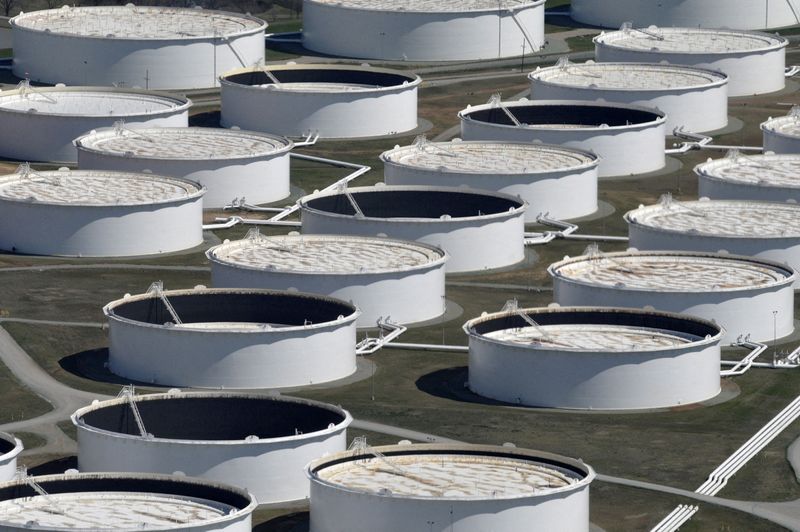By Stephanie Kelly
NEW YORK (Reuters) -Oil prices fell over 2% on Monday as diplomatic efforts in the Middle East intensified in an attempt to contain the conflict between Israel and Hamas, easing investor concerns about potential supply disruptions.
Brent crude futures settled down $2.33, or 2.5%, at $89.83 a barrel. U.S. West Texas Intermediate crude futures were down $2.59, or 2.9%, at $85.49 a barrel.
The session's losses were the most both benchmarks have dropped in a day since early October.
European Union leaders will call for a "humanitarian pause" in the conflict this week so that aid can reach Palestinians in Gaza, with the leaders of France and the Netherlands set to visit Israel this week.
Aid convoys started to arrive in the Gaza Strip from Egypt over the weekend.
"The imminent risk to supply seems to have gone down," said Phil Flynn, analyst at Price Futures Group. "People are paring back positions until they see how this plays out."
The armed wing of the Palestinian Hamas militant group said on Monday it had released two female civilian captives in response to Egyptian-Qatari mediation efforts, and a source told Reuters they were elderly Israelis.
Israel continued its bombardment of Gaza on Monday after launching air strikes over southern Lebanon overnight.
Both oil benchmarks notched week-on-week gains for the last two weeks, on the possibility of supply disruption in the Middle East — the world's biggest oil-supplying region — if the conflict were to spread.
"Escalating wrath in the region will strengthen economic headwinds, potentially rising oil prices will push global inflation higher, monetary tightening could resume, and global oil demand growth will be dented," said PVM analyst Tamas Varga.
Elsewhere, U.S. President Joe Biden last week announced the suspension of sanctions on OPEC member Venezuela, after a Venezuelan government deal with the opposition.

That could bring exports back to the market, but the extent to which this could mitigate the impact of supply risks in the Middle East is unclear.
"The move is expected to add 200-300,000 barrels per day of Venezuelan crude to the global export market, which isn't necessarily a market-moving event on its own, nor are those barrels expected imminently," RBC (TSX:RY) analyst Michael Tran said in a note.